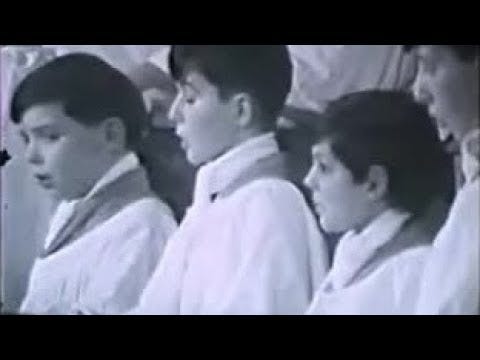Our back-to-school discount is still on at Word & Song, good for new paid and upgraded subscriptions as well as gifts (for the students, teachers, homeschoolers, and just about anyone who might like our magazine).
Fourteen years before the author of our Hymn of the Week, the Reverend John Ernest Bode, penned this ballad of friendship and service to God, he was selected to give the Bampton Lecture at Oxford, an endowed lecture in defense of the Christian faith. Bode decided quite specifically not to lecture on some abstruse point of theology. It was the other way around: he wanted to insist on two things that seem to be contradictory. One is that the mysteries of the faith, unless God has seen fit to explain them once and for all, must remain mysterious; and the other is that the most powerful preaching, especially for such young men as were hearing him then, should be accessible to common understandings. But these are not contradictory after all. It takes quite a lot of cleverness, schooling, and pride to reduce a genuine mystery to something to be tagged and labeled and put in a drawer, under the category “Understood.” Speaking of the mysterious marriage of Christ and the Church, Bode says this:
“Let us not be ashamed to use of this high and deep spiritual relation, the words which a poet of our time puts in the mouth of a friend speaking of a wiser friend, . . . ‘I cannot understand; I love.’ And let us not shrink from following into darkness, even though it be for long, even though it be for always while we are here, Him who having Light, and being Light, will make our darkness light, not perhaps in respect of our halting understandings, but of our hearts. And it is the heart that is the main scene of the miracles of grace.”
That doesn’t mean that God is a matter of feeling — far from it. He is the ultimate reality, the guarantor of objective truth, Being itself in all possible fullness. The question has to do with how we come to know God, and Bode wanted to insist upon the primacy of a deep and personal relationship, that of love.
But Bode’s hymn below brings into play two relationships, and again we have two things that may seem to us impossible to combine. The one is of friend with friend. The other is of Master and Servant. And again this is mysterious. In the New Testament, the word we translate as disciples, Greek mathetes, might whimsically be rendered as schoolboys, and the disciples of Jesus do often call him Teacher. That’s Latin magister, from which, through Norman French, we get the English word master: think of the old-fashioned term schoolmaster. Somehow, the right relationship with Jesus combines the humble willingness to learn with a real and powerful friendship. Now, if the pupil is to become the friend of the Teacher, it can only happen by cheerful and willing service on the pupil’s part, and, on the Teacher’s part, a love that reaches down to meet the pupil at his own level, to raise him up. And this is what Jesus always did, using no abstruse terms, heaping no burdens of esoteric learning upon his disciples’ heads, citing no string of authorities to daze their eyes, but speaking in words they could not misunderstand, to reveal truths that no man however good and wise can ever comprehend. Thus it is that a child can enter the temple, and in a sense it’s only children who do enter the temple, but when they are inside, they find inexhaustible wonders. Love alone can begin to grasp why this must be so.
It’s Satan who bellows, “I shall not serve!” — and becomes a slave to his own passions, and as Milton shows, and as people who follow politics can often see, the flatterer and the flunky of those whose overlord he wants to be. Bode’s hymn affirms the reverse. “Freely we serve,” says Milton’s Raphael, “because we freely love.”
Today’s hymn is sung with elegant simplicity by the Guildford Cathedral Choir in a recording from 1967.
O Jesus, I have promised to serve Thee to the end; be Thou forever near me, my Master and my Friend; I shall not fear the battle if Thou art by my side, nor wander from the pathway if Thou wilt be my Guide. O let me feel Thee near me, the world is ever near; I see the sights that dazzle, the tempting sounds I hear; my foes are ever near me, around me and within; but, Jesus, draw Thou nearer, and shield my soul from sin. O let me hear Thee speaking in accents clear and still, above the storms of passion, the murmurs of self-will; O speak to reassure me, to hasten or control! O speak, and make me listen, Thou Guardian of my soul! O Jesus, Thou hast promised to all who follow Thee that where Thou art in glory there shall Thy servant be; and, Jesus, I have promised to serve Thee to the end; O give me grace to follow, my Master and my Friend!



What a lovely, memorable hymn! Love it.
Learned something new. Never heard this hymn before.